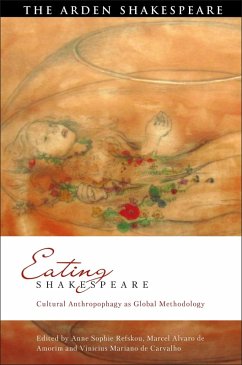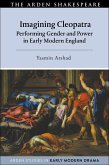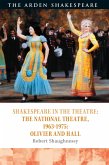Eating Shakespeare provides a constructive critical analysis of the issue of Shakespeare and globalization and revisits understandings of interculturalism, otherness, hybridity and cultural (in)authenticity. Featuring scholarly essays as well as interviews and conversation pieces with creatives - including Geraldo Carneiro, Fernando Yamamoto, Diana Henderson, Mark Thornton Burnett, Samir Bhamra, Tajpal Rathore, Samran Rathore and Paul Heritage - it offers a timely and fruitful discourse between global Shakespearean theory and practice.
The volume uniquely establishes and implements a conceptual model inspired by non-European thought, thereby confronting a central concern in the field of Global Shakespeare: the issue of Europe operating as a geographical and cultural 'centre' that still dominates the study of Shakespearean translations and adaptations from a 'periphery' of world-wide localities. With its origins in 20th-century Brazilian modernism, the concept of 'Cultural Anthropophagy' is advanced by the authors as an original methodology within the field currently understood as 'Global Shakespeare'. Through a broad range of examples drawn from theatre, film and education, and from both within Brazil and beyond, the volume offers illuminating perspectives on what Global Shakespeare may mean today.
The volume uniquely establishes and implements a conceptual model inspired by non-European thought, thereby confronting a central concern in the field of Global Shakespeare: the issue of Europe operating as a geographical and cultural 'centre' that still dominates the study of Shakespearean translations and adaptations from a 'periphery' of world-wide localities. With its origins in 20th-century Brazilian modernism, the concept of 'Cultural Anthropophagy' is advanced by the authors as an original methodology within the field currently understood as 'Global Shakespeare'. Through a broad range of examples drawn from theatre, film and education, and from both within Brazil and beyond, the volume offers illuminating perspectives on what Global Shakespeare may mean today.









